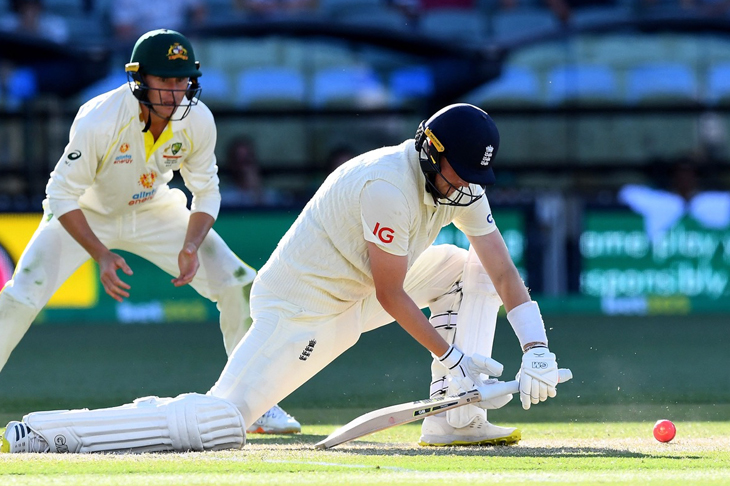It is often said that men only cry when famous sportsmen retire. Having attended many big sporting events in my life, I can assure you that this is not true. Sports offer unique insights into the human condition. With the possible exception of music festivals, no cultural medium exists that evokes the same shared euphoria that Emile Durkheim called collective effervescence.
Many of us will never understand the years of hard work and dedication that turn an average athlete into a legend. Success in sport lives on beyond the limits of our existence. A sportsman’s record-breaking achievements will forever go down in history. Their success is a testament to their lifelong commitment. A belief that continues to captivate and delight people long after we die.
Greatness is contagious. We like to live vicariously, finding ourselves in others whom we admire and often idolise. Sportsmen motivate us to take on new challenges in life. We are inspired by how they struggle to overcome adversity. Sports don’t just distract us from the hustle and bustle of every day life, they teach us what it means to be human. We applaud the determination and bravery of the boxers who are still standing after 12 rounds, and we cheer for those who came last and gave their best.
But there is one thing that sports cannot conjure up: rivalry. Many commentators contrive to do so, but this process is neither planned nor intentional. It’s natural and develops organically over decades. When it comes to great sporting rivalries, nothing beats the 140-year-old war-on-the-wicket known as the Ashes. The 73rd series begins at Edgbaston on June 16th.
To borrow 10cc’s immortal words, ‘I don’t like cricket. I love it’. Ever since I was a kid, I have been fascinated by the five-day test tournament. Maybe it was a wasted youth or perhaps my generation’s ability to sit still for more than eight seconds. Whatever it is, I am a product of a society that understands the concept of deferred gratification.
As an Englishman, I have always admired the tenacious courage and character of Australians. Your country has a long and proud history of cricket rebels and bad boys. From David Boon’s legendary 52 tinnies to Merv Hughes’ limited but glorious vocabulary (die, pommy, bastard), the baggy greens have always entertained. But it also means that, as Brits, we are genetically predisposed to failure. Australia dominated the Test game for most of the 1990s (and, let’s be honest, most of the 2000s). Nasser Hussain and Michael Vaughan were no match for Warne, McGrath and Ponting. But just as much as I loved watching Damien Martyn (clearly the Tom Cruise of cricket) guide the ball for four through cover, I loved the sledging. Who could forget Ian Healy’s classic sledge to Phil Tufnell, ‘Tuffers, can you lend me your brain, I’m building an idiot.’
But that was a long time ago. A lot has changed. Despite being a world-class batsman, Joe Root was a disappointing captain, winning just one of his last 17 Tests in charge. Things changed when the Yorkshireman handed over the captaincy to Ben Stokes and Brendon McCullum took over as coach. Since his appointment, McCullum has encouraged England to adopt a more attacking style of play. Commonly known as Bazball, this aggressive style of cricket has seen England win 11 of the 13 Tests since the 41-year-old New Zealander joined in May 2022. England’s batting average no longer resembles the age of the latest Leonardo DiCaprio sexual conquest.
England’s smash-it-everywhere style contrasts with Australia’s more traditional approach to the red ball game. Star batsmen Marnus Labuschagne and Steve Smith, who are ranked number one and number three, respectively, in the Test ICC rankings, happily occupy the crease for hours, if not days. Both adapted to English conditions by playing cricket for Glamorgan and Sussex counties, respectively.
A serious concern for Australia is David Warner. The 36-year-old left-hander is suffering from a poor run of form. Aside from one double hundred against South Africa in December, the hard-hitting opening batsman has not passed fifty in his past 11 Tests.
It’s a situation his nemesis, Stuart Broad, will relish. The Nottinghamshire seamer has dismissed Warner 14 times in 26 Test matches, more than any other bowler. In the last Ashes series in England in 2019, Warner averaged just 9.5, the worst figures by an opener to play 10 innings in a series, with Broad claiming his wicket seven times.
Supporting Broad is his old friend James Anderson. Anyone who believes talent declines with age needs to take a look at the records. With his career approaching a third decade, Anderson sits third on the list of all-time Test wicket-takers. Like McGrath and Warne, Anderson and Broad are a lethal combination. They might be pushing a combined age of 80, but together they’ve taken more than 1,000 wickets. In fact, they recently surpassed the aforementioned Australian spin and swing duo. England will be without the express pace of Jofra Archer. The Barbados-born fast bowler is suffering from a repetitive stress fracture in his right elbow. Mark Wood is likely to replace him. But if anyone can bowl at 95mph, it’s the cheeky Durham quick.
Australia have not won a series in England since 2001. The most recent series in 2019 ended in a draw, with Australia retaining the Ashes. England, on the other hand, are looking for their first win on home soil since 2015.
God knows who will win. It’s the only sport that can last five days and end in a draw. But as long as Zak Crawley remembers how to use his bat, Ben Stokes remembers he can block it from time to time, and God forbid, a chronic bout of diarrhoea doesn’t break out in the Australian camp, particularly affecting Smith and Labuschagne, England might, just might win.
Game on!
Got something to add? Join the discussion and comment below.
Get 10 issues for just $10
Subscribe to The Spectator Australia today for the next 10 magazine issues, plus full online access, for just $10.
You might disagree with half of it, but you’ll enjoy reading all of it. Try your first month for free, then just $2 a week for the remainder of your first year.














Comments
Don't miss out
Join the conversation with other Spectator Australia readers. Subscribe to leave a comment.
SUBSCRIBEAlready a subscriber? Log in